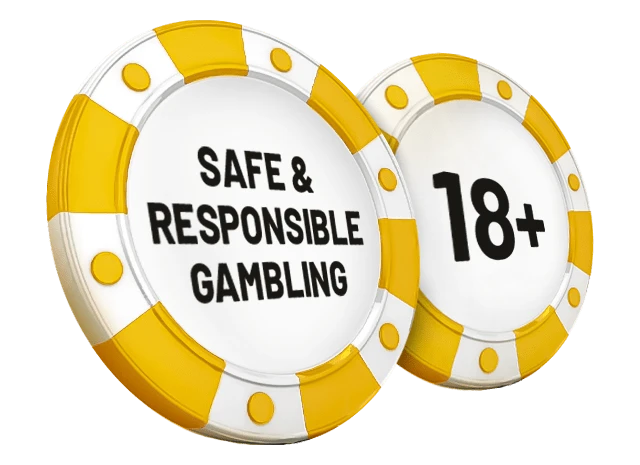Responsible Gambling
As a leading review platform for Inclave-integrated online casinos serving Canadian players, we feel it’s our duty to provide educational resources on gambling responsibly. While casino games can certainly be enjoyable entertainment, it’s crucial to maintain control and recognize when recreational play starts becoming problematic.

Understanding Problem Gambling Problem gambling refers to a loss of control over gambling habits, where it disrupts other key areas of life like finances, relationships, and mental well-being. The Canadian Problem Gambling Index outlines degrees of severity:
- Non-gambling
- Non-problem gambling
- Low-risk gambling
- Moderate-risk gambling
- Problem gambling
Problem gambling is the most severe category, displaying characteristics like chasing losses, lying about time/money spent gambling, and exhibiting signs of preoccupation or agitation when unable to gamble.
The medical community now formally recognizes problem gambling as a behavioral addiction, similar to substance abuse. This has paved the way for better treatment methods through counseling, support groups, and other therapeutic approaches.
How Gambling Becomes Addictive For problem gamblers, the gambling itself becomes the top priority, even over responsibilities to family, work, or personal well-being. This is due to the brain’s reward system becoming overactive through the excitement and dopamine rushes gambling provides.
Over time, the brain can become reliant on that intense pleasure feeling and drives the individual to continue gambling at unsustainable levels to recreate it. This compulsive behavior often leads to lying, alienation from loved ones, financial problems and other negative consequences.
Signs of Potential Gambling Problems Some potential red flags that gambling could be becoming problematic:
- Being overly secretive about gambling habits or bankrolls
- Displaying unexplained aggression, depression or anxiety
- Borrowing money frequently or funds unexpectedly going missing
- Using gambling as an escape from other issues or stressors
- Obsessing over gambling or exhibiting restlessness when unable to play
If you recognize these signs in yourself or a loved one, it’s vital to objectively assess whether professional assistance may be needed.
Getting Help for Gambling Addiction For those struggling with gambling addictions, the first step is realizing you have a problem and being willing to make changes. An excellent starting point is contacting Gamblers Anonymous (www.gamblersanonymous.org), which follows the renowned 12-step program philosophy.
Their group support meetings and sponsor guidance can provide invaluable encouragement and advice. Cognitive behavioral therapy has also proven very effective for gambling disorders.
Family members should avoid confrontation but instead have an open and supportive discussion, not making judgements. Counseling, finding alternative activities the person enjoys, and self-exclusion from gambling sites can also aid recovery.
Resources for Help in Canada
Several Canadian organizations offer support and resources for those struggling with gambling addiction:
- Canadian Centre on Substance Use and Addiction (CCSA): Provides a comprehensive array of resources related to gambling and addiction. Visit CCSA
- Canadian Mental Health Association (CMHA): Offers support for mental health issues, including problem gambling. Visit CMHA
- Ontario Problem Gambling Helpline: Access immediate support and direction to local resources. Visit the Helpline
Responsible Gambling Tips For casual or recreational gamblers, we recommend adopting some best practices:
- View gambling as entertainment, not a way to profit
- Only gamble with money you can comfortably afford to lose
- Set strict bankroll limits and stick to them, never chasing losses
- Take frequent breaks, even when on a winning streak
- Never gamble when experiencing high stress, anxiety or depression
- Self-exclude from gambling sites periodically to reset
- Decline all bonus offers designed to prolong excessive play
Analyzing Your Gambling Behavior Ask yourself these questions to gauge if gambling could be becoming problematic:
- Have you ever been dishonest about time or money spent gambling?
- Do you gamble as an escape from real-life issues?
- Are you relying on gambling winnings to fund other expenses?
- Have you borrowed money or missed other commitments due to gambling?
If you answered yes to any of those, it may indicate the early signs of a potential gambling problem that requires adjusting your habits or seeking assistance.
Conclusion: Your Role in Responsible Gambling
At InclaveCasino.ca, we encourage you to approach gambling as a form of entertainment, not a means to earn income. By understanding the risks, recognizing the early signs of problem gambling, and knowing where to get help, you can maintain a balanced approach to online gaming. If you believe that gambling is impacting your life or that of someone you know, do not hesitate to reach out for help. Remember, responsible gambling is the key to keeping it fun and safe.
